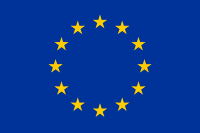#5 Policy Recommendation Area
Design a model for ethical cultural heritage practices
About this process
This process belongs to Policy Recommendations Toolkit
Design a model for ethical cultural heritage practices
#5 Policy Recommendation Area
Design a model for ethical cultural heritage practices
Duty of care
The ongoing socio-economic challenges in Europe and on an international scale call for novel and systemic ethics-sensitive cultural heritage institutions. Institutions are focused on their duty of providing access to heritage collections, while upholding their responsibility to manage the way the objects and data are being shared with wider communities. This can be achieved through the introduction of more responsible and ethical curatorial strategies and the democratisation of processes in cultural heritage institutions.
Broad take on ethics
Moreover, cultural heritage institutions have a mission to provide information in a reliable, transparent fashion, and thus can and should provide spaces for democratic and transparent dialogue to engage and empower different communities and broader society. The same rules also apply to the adoption of tech by cultural heritage institutions (eg. heritage for ethical AI) as well as CHIs’ environmental responsibility (specifically in regard to the digital realm).
Gap between strategies and daily operations
There is a perceptible gap between existing ethical policies and codes of ethics in the sector and their translation into daily operations in a constantly and dynamically changing world. The challenges and resistance to the addition of new translations into daily operations must be discussed at an international level, and lead to the integration of guidelines and strategies into the daily operations of heritage professionals.
Operationalisation of recommendation #5:
5.1 Identify and address current ethical questions relevant to the heritage sector
Heritage Networks Cultural Heritage Institutions
5.2 Revisit ethical strategies in cultural heritage institutions
Policy makers at the EU and national level Heritage Networks
5.3 Empower a stewardship mindset in cultural heritage institutions






Share: